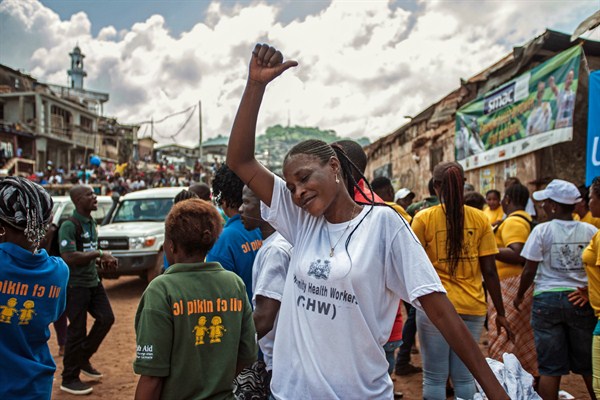The Ebola outbreak in West Africa, it seems, is nearly over. On Nov. 6, the World Health Organization (WHO) announced that Sierra Leone had gone 42 days without any new cases of Ebola and officially declared the country Ebola-free. Two months earlier, on Sept. 3, the WHO made a similar declaration for Liberia—though the disease reappeared there on Nov. 20. Guinea has gone more than two weeks without any new cases, raising hopes that it, too, will soon cross the 42-day threshold to being free of Ebola. When this current Ebola epidemic ends, it will have the dubious distinction of being the worst Ebola outbreak ever known, sickening nearly 29,000 people and killing more than 11,000.
As the international community cautiously prepares for the end of the outbreak, it is vital to consider the lasting lessons for future epidemic responses. Two review panels, one independent and one organized by the WHO, recently recommended boosting the agency’s outbreak and emergency response capacities and keeping them free from political meddling. Three other lessons are key.
First, now is the time to support strengthening primary health care systems, which are the backbone of an effective public health system. Not only do they provide frontline care for the vast majority of individuals and treat the most common ailments and injuries, but they also play a vital role in noticing, identifying and responding to disease outbreaks. States with effective primary health care systems are better positioned to address disease outbreaks quickly and before they get out of hand. During the Ebola outbreak, these medical professionals were absolutely vital to implementing effective support, treatment and quarantine systems.

